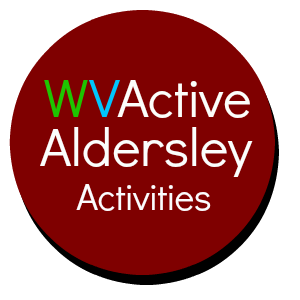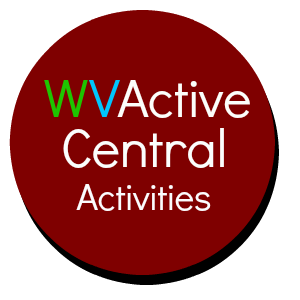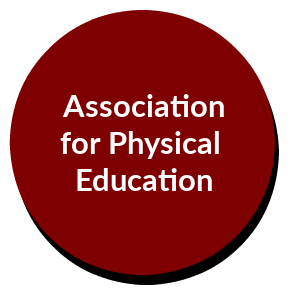Sports Premium
What is Sports Premium?
The government provides funding for primary school sports. The funding is provided by the Departments for Education, and will be provided directly to primary school Head teachers to spend on improving the quality of Physical Education, School Sport and Physical Activity (PESSPA) for all pupils. The funding can only be spent on PESSPA provision in schools to ensure that all pupils receive high quality physical education, regardless of their ability.
What is the purpose of Sports Premium?
All schools must use the sports premium to fund additional and sustainable improvements for provision of PESSPA, but there is freedom to choose how we do it. At Bantock Primary School we recognise the contribution of PESSPA to develop healthy, active lifestyles and enhance the well-being of all pupils. In addition, we believe that an innovative and varied PE curriculum and extra-curricular opportunities have a positive influence on the behaviour, attitude and academic achievement of all pupils.
What is our approach to spending the Sports Premium?
At Bantock Primary we provide all children with equal opportunities to participate in a broad and balanced curriculum that ensures all abilities are inspired and educated, strong relationships are nurtured, and children are happy to participate in new challenges with a strong emphasis on all pupils succeeding in sport. We aim to remove all barriers to achievement and make every child SHINE.
Any objectives that school find to be successful will then be implemented into the school’s policies and procedure for the following years to sustain these improvements.
Sports Ambassadors
At Bantock, our Sports Ambassadors promote their love of physical activity and aim to get everyone involved in lunchtime activity. They deliver a range of engaging activities, whilst developing their leadership skills, organisation and confidence. As well as helping out at lunchtimes, the Sports Ambassadors deliver after-school clubs, which target pupils who are less keen to engage in sport and exercise. This helps to boost their self-esteem and health and promote a life-long love of physical activity.
Action Plan 2024 – 2025
|
School Improvement Key Indicators for the Quality of Physical Education, School Sport and Physical Activity (PESSPA) |
||||
|
Key indicator 1 – The engagement of all pupils in regular physical activity – Chief Medical Officer guidelines recommend that primary school pupils undertake at least 30 minutes of physical activity a day in school. |
Percentage of total allocation |
|||
|
56.72% |
||||
|
Intent |
Implementation |
Funding Allocated |
Impact |
Evaluation Sustainability and next steps |
|
Enhance the physical and mental health and emotional well-being of all learners through physical activity daily.
|
Continue to effectively work in partnership with an external sports specialist to provide a curriculum that is inclusive, engaging and inspiring. Enhance lunchtime provision and after-school clubs for targeted pupils (those with low self-esteem, poor physical health, SEMH needs). Leading to pupils developing social skills, improved levels of physical fitness and positive self-esteem. |
See allocations below |
|
|
|
Continue to utilise the allotment to enhance pupils’ fine and gross motor skills as well as developing co-operation, communication and resilience. |
£6389 |
|
|
|
|
Enhance the range of lunchtime activities provided for KS1 and KS2 based on their needs and interests identified from pupil voice. Activities and sports tailored to the needs of all pupils will be exciting, stimulating and inclusive resulting in pupils being physically active, working collaboratively, developing problem solving skills and developing their enjoyment of physical activity. |
£11,465 |
|
|
|
|
Resource and enhance existing outdoor provision, so all pupils engage with an exciting, stimulating and inclusive outdoor environment. |
£200 |
|
|
|
|
Research and implement strategies and initiatives to reduce long periods of inactivity during lessons and enable pupils to refocus, recharge and be ready to learn. |
No cost |
|
|
|
|
Continue to embed use of physical fitness equipment (outdoor gym facilities) within break times, lunch times and extra-curricular opportunities to enhance pupils’ physical fitness and well-being. Provide ‘intervention’ for those pupils who are less active. |
£1753 |
|
|
|
|
HWB lead to monitor swimming attainment half termly, amending provision when required to raise attainment. |
£164 |
|
|
|
|
Key indicator 2 – The profile of PESSPA being raised across the school as a tool for whole school improvement |
Percentage of total allocation |
|||
|
13.30% |
||||
|
Intent |
Implementation |
Funding Allocated |
Impact |
Evaluation Sustainability and next steps |
|
Enhance the PESSPA profile of the school to increase pupils involvement and engage all in school improvement. |
Continue to embed use of Y6 outside learning leaders (Sports Ambassadors) to support delivery of physical activities that promote personal values/character strengths and build upon physical skills.
Provide training for Y5 outside learning leaders. |
£1625 |
|
|
|
Continue to share a broad range of websites, ideas and links to outside organisations to enhance the profile of PESSPA and engage all pupils in physical activity. |
£109 |
|
|
|
|
Provide cycle training for a greater number of pupils in Y4 and further training for Y6 pupils, resulting in a greater number of pupils being able to partake in physical activity outside of the school day. |
No cost |
|
|
|
|
Purchase sports kit, featuring the new logo, for pupils to attend inter competitions, promoting equality, unity and a sense of belonging. |
£400 |
|
|
|
|
Improve parental awareness on the importance of learning though outdoor physical activities by increasing parent/carer engagement and participation in physical activities such as visits and sports days. |
£2000 |
|
|
|
|
Showcase and celebrate the sporting activities pupils and staff participate in both inside and outside of school through the school newsletter, twitter, website and assemblies. Encouraging all pupils to seek out and partake in new opportunities. |
£548 |
|
|
|
|
Key indicator 3 – Increased confidence, knowledge and skills of all staff in teaching PE and sport. |
Percentage of total allocation |
|||
|
19.18% |
||||
|
Intent |
Implementation |
Funding Allocated |
Impact |
Evaluation Sustainability and next steps |
|
Provide teachers with further CPD to enhance their confidence and knowledge when delivering and assessing sports including swimming CPD for relevant teachers.
|
Enhance quality of teaching, learning, delivery and assessment of PE lead to improve standards with greater and more rapid progress. Continue to use P.E planning resource (Complete PE) which gives staff instant support in the progression steps. |
£150 |
|
|
|
Repurchase afPE (School Membership) to ensure access to specialist and expert support, thus keeping the school fully up to date with developments to the curriculum. |
£150 |
|
|
|
|
External specialists (Wolves Foundation) assist with the technical upskilling of staff through modelling best practise during lessons, allowing them to take ownership of the learning when their confidence, knowledge and skills have developed further. |
£5400 |
|
|
|
|
PE lead to attend CPD that will develop knowledge and understanding, together with their confidence and competence to deliver across all contexts. Training to be disseminated to staff throughout meetings, enhancing the quality of teaching, learning, delivery and assessment to improve standards with greater and more rapid progress. |
£390 |
|
|
|
|
CPD from external specialists that focuses on upskilling staff with the knowledge, skills and confidence to embed physical activity throughout the curriculum. Focus to be on the greatest area of need identified through teacher feedback. |
No cost |
|
|
|
|
Identified staff to attend Swimming CPD and gain qualifications, enabling them to develop the confidence, knowledge and skills to deliver Level 1 swimming lessons to primary age pupils. |
£500 |
|
|
|
|
Staff delivering lunchtime activities to receive further CPD from PE lead/HWB lead on the delivery of lunchtime sports/activities with the aim to increase engagement in physical activity improving pupil health and fitness, social skills and emotional well-being. |
£164 |
|
|
|
|
Key indicator 4 – Broader experience of a range of sports and activities offered to all pupils. Key indicator 2 – The profile of PESSPA being raised across the school as a tool for whole school improvement. |
Percentage of total allocation |
|||
|
8.95% |
||||
|
Intent |
Implementation |
Funding Allocated |
Impact |
Evaluation Sustainability and next steps |
|
Pupils of all ages, abilities and interests are able to access a range of sport related activities and competitions, both internally and externally.
|
Pupils of all abilities to access extra-curricular sporting provision after school throughout the academic year (including football, hockey, netball, athletics, cricket, multi-skills and rounders) improving their health and fitness, nutritional knowledge, social skills and emotional well-being. |
£2700 |
|
|
|
Enable pupils to access a range of sports and activities during lunchtimes that are not covered within the PE curriculum to provide further experiences, ensuring pupils develop new skills and attributes. |
No cost |
|
|
|
|
Participate in a range of ‘Engage and Inspire’ events through the Wolverhampton Association for Sport in Primary Schools (WASPS) so that pupils who are SEND, less active or less confident with physical activity can partake in a variety of fun, engaging activities. |
£451 |
|
|
|
|
Research and implement external agencies to provide extra-curricular clubs focusing on a broader range of activities (Dance, gymnastics, OAA). |
Awaiting costing |
|
|
|
|
Partner with another school to organise friendly competitions, enhancing pupils skills, teamwork and resilience. |
No cost |
|
|
|
|
Signpost those pupils who excel in a particular sport to external organisations, encouraging them to participate in competitive sport at a higher level. |
No cost |
|
|
|
|
Key indicator 5 – Increased participation in competitive sport. |
Percentage of total allocation |
|||
|
1.85% |
||||
|
Intent |
Implementation |
Funding Allocated |
Impact |
Evaluation Sustainability and next steps |
|
Pupils of all ages, abilities and interests are able to access a range of sport activities and competitions, both internally and externally. |
Diversify the enrichment and competition offer by providing access to a higher standard of intra and inter-school competition in an increased range of sports. Consequently, pupils will be challenged further in terms of ability, resilience, technique and competitive tactics. |
£650 |
|
|
|
Enter a range of boys, girls, mixed and SEND teams into various competitions throughout the year. |
|
|
||
|
Ensure pupils of all ages, abilities and interests are able to access a range of weekly extra-curricular activities that include competitive sports (after school and lunchtime) including targeted and least active provision. |
No cost |
|
|
|
|
Total Cost |
£35208 |
|||||
|
Sports Premium allocated for 2024 – 2025 |
£19500 |
|||||
|
School Contribution |
£15708 |
|||||
|
Signed Dated |
Subject Leader |
L Craze 11.9.24 |
Headteacher |
H Sarai 26.9.24 |
Governor |
|
|
Next Steps |
|
|||||
Swimming Data
|
Meeting national curriculum requirements for swimming and water safety. |
||
|
Question |
Stats |
Further Context Relative to local challenges |
|
What percentage of your current Year 6 cohort can swim competently, confidently and proficiently over a distance of at least 25 metres? |
|
|
|
What percentage of your current Year 6 cohort can use a range of strokes effectively [for example, front crawl, backstroke, and breaststroke]? |
|
|
|
What percentage of your current Year 6 cohort perform safe self-rescue in different water-based situations? |
|
|
|
If your schools swimming data is below national expectation, you can choose to use the Primary PE and sport premium to provide additional top-up sessions for those pupils that did not meet National Curriculum requirements after the completion of core lessons. Have you done this? |
|
|
|
Have you provided CPD to improve the knowledge and confidence of staff to be able to teach swimming and water safety? |
|
|
Evaluated Plan 2023 – 2024
|
School Improvement Key Indicators for the Quality of Physical Education, School Sport and Physical Activity (PESSPA) |
||||
|
Key indicator 1 – The engagement of all pupils in regular physical activity – Chief Medical Officer guidelines recommend that primary school pupils undertake at least 30 minutes of physical activity a day in school. |
Percentage of total allocation |
|||
|
32% (£11,935) |
||||
|
Intent |
Implementation |
Funding Allocated |
Impact |
Evaluation Sustainability and next steps |
|
Enhance the physical and mental health and emotional well-being of all learners through physical activity daily.
|
Continue to effectively work in partnership with an external sports specialist to provide a curriculum that is inclusive, engaging, and inspiring. Enhance lunchtime provision and after-school clubs for targeted pupils (those with low self-esteem, poor physical health, SEMH needs). Leading to pupils developing social skills, improved levels of physical fitness and positive self-esteem. |
Wolves Foundation See allocations below |
The sports specialists have delivered engaging and inclusive lessons. Lunchtime and after-school clubs have targeted pupils, engaging them in physical activity. As a result of the provision provided, pupils were able to participate in a range of competitions: football, netball, dodgeball and multi-skills.
It is evident through pupil voice that pupils enjoy participating in the activities on offer, however some have commented that they would like to participate to striking and fielding activities (such as tennis/cricket) within after-school provision. |
Continue to work collaboratively with the external specialists with a focus on games. Provide targeted provision for those requiring additional support. PE lead to monitor and assess the effectiveness of the provision provided to ensure that it is of a high-quality. |
|
Continue to consistently use the allotment to develop pupils’ fine and gross motor skills as well as developing co-operation, communication and resilience. |
£792
|
Through targeted provision, 20 pupils have accessed the allotment, alongside activities designed to develop positive mental health. Analysis from the Sterling well being scale has shown that all pupils that participated felt that their self-esteem has improved and that they are now feeling happier and more confident. Additionally, pupils developed co-operation and communication skills by working alongside pupils of different ages. |
Continue to use the allotment to enhance the physical and mental well-being of targeted pupils using outcome from the sterling well-being scale. |
|
|
Enhance the range of lunchtime activities provided for KS1 and KS2 based on their needs and interests identified from pupil voice. Activities and sports tailored to the needs of all pupils will be exciting, stimulating and inclusive resulting in pupils being physically active, working collaboratively, developing problem solving skills and developing their enjoyment of physical activity. |
£10,488
|
A range of inclusive and engaging activities have been implemented throughout the year ensuring that the majority of pupils have been engaged in stimulating physical activity throughout lunchtimes. Evidence has been seen of pupils working collaboratively to enhance their physical activity. |
Make further use of Complete PE resources to enhance physical health further and engage more pupils in a range of activities that they may not have experienced before. |
|
|
Further resource and enhance existing outdoor provision, so all pupils engage with an exciting, stimulating and inclusive outdoor environment. |
£200 |
Pupils have accessed a wide range of resources, enabling them to engage with physical activity. |
Continue to provide activities and equipment for pupils to access. |
|
|
Research and implement strategies and initiative to reduce long periods of inactivity during lessons and enable pupils to refocus, recharge and be ready to learn. |
No cost |
Through use of Supermovers and Yoga pupils engage in physical activity throughout the day, reducing long periods of inactivity. Pupils have commented that by participating in Supermovers, they feel energised and ready to begin their learning again. |
Continue to make use of Supermovers and other content that will engage pupils in their learning as well as boost concentration and mood. |
|
|
Continue to embed use of physical fitness equipment (outdoor gym facilities) within break times, lunch times and extra-curricular opportunities to enhance pupils’ physical fitness and well-being. Provide ‘intervention’ for those pupils who are less active. |
£346 |
All pupils have had consistent access to the gym equipment during break and lunchtimes. Pupil voice identified that pupils enjoy using the gym equipment daily, improving their fitness. Pupils who are deemed as less active have been encouraged to use the equipment at their own leisure daily. |
Sustain the use of the gym equipment, enabling all pupils to access. Further educate staff on strategies to use to engage and challenge those pupils who are less active. |
|
|
HWB lead to monitor swimming attainment half termly, amending provision when required to raise attainment. |
£149 |
Monitoring of swimming attainment has identified that pupils are making good progress, due to effective groupings and high-quality teaching delivered by qualified instructors. |
Continue to monitor provision, identifying pupils who may require additional support. |
|
|
Use social media (Facebook and Twitter) to share physical activity content (videos) that will encourage pupils to be active at home. |
No cost |
Physical content has been shared through the website and digital newsletters. |
Continue to target a wider audience through the use of social media channels that both parents and pupils access regularly. |
|
|
Key indicator 2 – The profile of PESSPA being raised across the school as a tool for whole school improvement |
Percentage of total allocation |
|||
|
5% (£1881) |
||||
|
Intent |
Implementation |
Funding Allocated |
Impact |
Evaluation Sustainability and next steps |
|
Enhance the PESSPA profile of the school to increase pupils involvement and engage all in school improvement. |
Continue to embed use of Y6 outside learning leaders (Sports Ambassadors) to support delivery of physical activities that encourage teamwork, communication and determination, building upon physical skills.
Provide training for Y5 outside learning leaders (Xplore). |
£348 |
Throughout the year, the sports ambassadors have engaged pupils in a range of engaging, inclusive activities. Training provided to Y5 equipped pupils with the knowledge and skills required to deliver activities that were fun, challenging and encouraged teamwork. |
Continue to provide training to Y5 pupils. To enhance their confidence and ability in delivering activities to other pupils. |
|
Enhance school website to include a broader range of websites, ideas and links to outside organisations to enhance the profile of PESSPA and engage all pupils in physical activity. |
No cost |
The school website includes a rage of websites and links highlighting physical activity. |
Sustain the content shared on the school website, directing all pupils to access. |
|
|
Invest in cycle training for pupils in Y4 and further training for Y6 pupils, resulting in a greater number of pupils being able to partake in physical activity outside of the school day. |
No cost |
A greater number of pupils accessed the Y4 training compared to previous years resulting in them learning how to cycle safely. Y6 training has not taken place due to restraints from the provider. |
Further engage a greater number of pupils by acquiring bikes from the Road Safety Team and planning consecutive sessions for all Y4 pupils. |
|
|
Purchase sports kit, featuring the new logo, for pupils to attend inter competitions, promoting equality, unity and a sense of belonging. |
£400 |
Bantock acquired new sports kit through donations from the Wolves foundation and Premier League. Pupils have worn the kit when attending extra-curricular activities, proudly representing the school. |
Monitor the condition of sports kit, ensuring that it is of a high-quality. Purchase any new kit as and when required. |
|
|
Educate parents/carers on the importance of diet and nutrition through providing resources and training on how to support their child (Community network group, parent questionnaire, parent’s evenings).
Acquire the support of an external agency/company that provide cooking sessions to educate parents/carers on how to prepare and cook healthy meals.
|
£1,133 |
Throughout the year, 3 sessions have been held within the Community network group, targeting parents, on developing their child’s diet. Support was provided through ConnectEd on the content and delivery of the sessions and how to support pupils and engage parents. The catering team have provided support at parents evening, showcasing a wide variety of nutritious meals that are provided at school but can also be made at home. |
Continue to target parents through the Community network group and at parent’s evenings. |
|
|
Showcase and celebrate the sporting activities pupils and staff participate in both inside and outside of school through twitter, website and assemblies. Encouraging all pupils to seek out and partake in new opportunities. |
No cost |
All sporting activities have been showcased through the school newsletters and assemblies. Pupils commented that they feel proud when their achievements are shared. |
Continue to showcase all sporting activities and achievements. Further promote and encourage pupils to participate in physical activities outside of school. |
|
|
Key indicator 3 – Increased confidence, knowledge and skills of all staff in teaching PE and sport. |
Percentage of total allocation |
|||
|
44% (£16,199) |
||||
|
Intent |
Implementation |
Funding Allocated |
Impact |
Evaluation Sustainability and next steps |
|
Provide teachers with further CPD to enhance their confidence and knowledge when delivering and assessing sports including swimming CPD for relevant teachers.
|
Internal qualified PE specialist to work alongside teachers delivering lessons across the school, ensuring all pupils receive lessons that are progressive and inclusive, and teachers are provided with sustainable CPD of a high quality that enables them to teach new sports and physical activities affectively. |
£6,919 |
Throughout the year, the internal PE specialist has delivered high-quality lessons across the school engaging all pupils in challenging and progressive physical activity. Staff have commented that they have enhanced their own knowledge and skills, developing in confidence when delivering lessons. |
Staff to continue to utilise the knowledge and skills acquired from working alongside internal specialists. |
|
Enhance quality of teaching, learning, delivery and assessment of PE lead to improve standards with greater and more rapid progress. Using a new P.E planning resource (Complete PE) giving staff instant support in the progression steps. |
£150 |
The PE lead has attended network meetings, remaining up-to-date with developments from the Youth Sport Trust and afPE. Expertise shared at the meetings has enabled the PE lead to assess the quality of provision and suggest areas to enhance next academic year. Complete PE has been used effectively throughout the year enhancing progression in lessons. |
Continue to make effective use of knowledge shared within CPD and network meetings. |
|
|
Audit PE provision and staff competency through observations and interviews with both adults and pupils, leading to an increased awareness of future areas of development. |
£322 |
Drop ins and pupils/staff voice has identified future areas of development. These include utilising the use of videos to model techniques and strategies. |
PE lead to continue to monitor the quality of the provision provided, identifying any areas of development. |
|
|
Repurchase afPE (School Membership) to ensure access to specialist and expert support, thus keeping the school fully up to date with developments to the curriculum. |
£115 |
Through the afPE, the HWB lead has remained up-to-date with any developments and altered provision as required. |
Continue to access the afPE to remain up-to-date with developments. |
|
|
External specialists (Wolves Foundation) assist with the technical upskilling of staff through modelling best practise during lessons, allowing them to take ownership of the learning when their confidence, knowledge and skills have developed further. |
£7,199 |
Throughout the year, all KS1 and KS2 teachers have taught alongside external specialists enabling them to develop in confidence and consistency of delivery when teaching. |
Continue to utilise external specialists and act upon teacher feedback on how they would like to be supported. |
|
|
PE lead to attend CPD that will develop knowledge and understanding, together with their confidence and competence to deliver across all contexts. Training to be disseminated to staff throughout meetings, enhancing the quality of teaching, learning, delivery and assessment to improve standards with greater and more rapid progress. |
£345 |
PE lead and other adults have attended CPD covering various sporting activities, enhancing their knowledge and understanding. In house training highlighted a range of resources available to support delivery of high-quality lessons. |
PE lead to continue to access relevant CPD and them disseminate practice. |
|
|
CPD from external specialists for all staff that highlights the importance of physical literacy and its profile aims, as well as addressing staff motivation and their relationship with physical education and sport. |
Youth Sport Trust CPD |
CPD was not accessed via the Youth Sport Trust. |
Further research CPD opportunities that are beneficial and of high-quality. |
|
|
CPD from external specialists that focuses on upskilling staff with the knowledge, skills and confidence to embed physical activity throughout the curriculum. Focus to be on teaching spatial awareness to reduce number of first aid incidents at break and lunch times. |
No cost |
Staff have accessed external CPD based on individual areas of development including Wild Tribe, dance, basketball, Gaelic football and cricket. They have commented that they now feel more confident in delivering these areas and have increased their understanding of the skills and rules. |
Continue to utilise staff CPD based on individual and whole school needs. |
|
|
Identified staff to attend Swimming CPD and gain qualifications, enabling them to develop the confidence, knowledge and skills to deliver Level 1 swimming lessons to primary age pupils. |
£1000 |
1 teacher has attended swimming CPD achieving a level 1 qualification. The staff member now feels secure in her ability to support pupils during swimming lessons. |
Provide further training to any new staff that will supervise the children during swimming lessons. |
|
|
Staff delivering lunchtime activities to receive further CPD from PE lead/HWB lead on the delivery of lunchtime sports/activities with the aim to increase engagement in physical activity improving pupil health and fitness, social skills and emotional well-being. |
£149 |
CPD and resources shared with the staff has enabled them to deliver new activities during play and lunchtimes, engaging a greater number of pupils. |
Embed new activities and further research alternatives. |
|
|
Key indicator 4 – Broader experience of a range of sports and activities offered to all pupils. Key indicator 2 – The profile of PESSPA being raised across the school as a tool for whole school improvement. |
Percentage of total allocation |
|||
|
12% (£4378) |
||||
|
Intent |
Implementation |
Funding Allocated |
Impact |
Evaluation Sustainability and next steps |
|
Pupils of all ages, abilities and interests are able to access a range of sport related activities and competitions, both internally and externally.
|
Pupils of all abilities to access extra-curricular sporting provision after school throughout the academic year (including football, hockey, netball, athletics, cricket, multi-skills and rounders) improving their health and fitness, nutritional knowledge, social skills and emotional well-being. |
£4,020
|
Throughout the academic year 266 pupils accessed the extra-curricular activities after school that were offered. All clubs were engaging and inclusive, developing pupils sporting skills, as well as their resilience, communication and collaboration skills. |
Continue to provide a broad range of extra-curricular activities based upon pupil voice, ensuring that all pupils have the opportunity to participate and develop their sporting ability and values/character. |
|
Enable pupils to access a range of sports and activities during lunchtimes that are not covered within the PE curriculum to provide further experiences, ensuring pupils develop new skills and attributes. |
No cost |
Pupils have continued to access sporting activities such as dodgeball, football and handball, including girls’ football, as these were the pupils’ preferences. All involved developed their personal attributes. |
Continue to evaluate the existing provision and enhance based upon pupil needs and areas of physical activity not already covered. |
|
|
Participate in a range of ‘Engage and Inspire’ events through the Wolverhampton Association for Sport in Primary Schools (WASPS) so that pupils who are SEND, less active or less confident with physical activity can partake in a variety of fun, engaging activities. |
£358 |
41 pupils who were SEN or deemed as less active/able participated in ‘Engage and Inspire’ events throughout the year. Pupils commented that they enjoyed participating and felt motivated to participate in more sport. |
Continue to partake in different events, engaging and inspiring more pupils. |
|
|
Research and implement external agencies to provide extra-curricular clubs focusing on a broader range of activities (Dance, gymnastics, OAA). |
Yoga
|
Due to a greater extra-curricular offer this year, no additional agencies were used within school. |
Evaluate existing provision to identify if external agencies are required to deliver clubs that the school cannot provide. |
|
|
Partner with another school to organise friendly competitions, enhancing pupils skills, teamwork and resilience. |
No cost |
No competitions were established this academic year with partner schools due to constraints with timetabling. |
Develop links with partner schools |
|
|
Signpost those pupils who excel in a particular sport to external organisations, encouraging them to participate in competitive sport at a higher level. |
No cost |
Identifies pupils have been signposted to external organisations. |
Continue to signpost pupils to external extra-curricular activities, encouraging them to pursue these. |
|
|
Key indicator 5 – Increased participation in competitive sport. |
Percentage of total allocation |
||||||
|
7% (£2654) |
|||||||
|
Intent |
Implementation |
Funding Allocated |
Impact |
Evaluation Sustainability and next steps |
|||
|
Pupils of all ages, abilities and interests are able to access a range of sport activities and competitions, both internally and externally. |
Diversify the enrichment and competition offer by providing access to a higher standard of intra and inter-school competition in an increased range of sports. Consequently, pupils will be challenged further in terms of ability, resilience, technique and competitive tactics. |
£2654 |
Throughout the year, over 25% of pupils (112 children) have participated in a range of sporting activities competing against other schools. Pupils have enhanced their sport related skills as well as their resilience, confidence and co-operation.
All pupils within school, competed in intra-competitions within lessons, lunchtimes, after-school clubs, sports day and personal challenge activities. |
Participate in a greater range of competitive and engaging sporting events throughout the school year, ensuring opportunities for all pupils. |
|||
|
Enter a range of boys, girls, mixed and SEND teams into various competitions throughout the year. |
All pupils were given an equal opportunity to participate in competitions as different pupils were chosen for each competition to ensure fairness/equality and promote a love of sport for all. |
Continue to allow all pupils equal opportunities with regards to competitions. |
|||||
|
Ensure pupils of all ages, abilities and interests are able to access a range of weekly extra-curricular activities that include competitive sports (after school and lunchtime) including targeted and least active provision. |
No cost |
Extra-curricular activities were offered to all year groups, however places in most clubs were limited so not all could participate. All pupils, including targeted and least active, were able to engage with lunchtime competitive sports enhancing their teamwork, resilience and confidence. |
Continue to provide a rich, diverse range of sporting opportunities for all pupils. Through pupils voice obtain pupils thoughts and preferences and develop the schools offer based upon these. |
||||
|
Total Cost |
£37,047 |
||||||
|
Sports Premium carried forward from 2022 – 2023 |
£0 |
||||||
|
Sports Premium allocated for 2023 – 2024 |
£19,310 |
||||||
|
Total Sports Premium |
£19,310 |
||||||
|
School Contribution |
£17,737 |
||||||
|
Signed Dated |
Subject Leader |
|
Headteacher |
|
Governor |
|
|
|
Next Steps |
– Continue to collaborate with external specialists to enhance our curriculum offer and develop staff knowledge, skills and understanding. – Further enhance our extra-curricular offer based on pupil voice, including the use of external agencies. – Form partnerships with other schools to diversify and enhance competitive sport. – Access further support and CPD for support staff to enable them to develop their knowledge and confidence in delivering sporting activities.
|
||||||
Swimming Data
|
Meeting national curriculum requirements for swimming and water safety. |
||
|
Question |
Stats |
Further Context Relative to local challenges |
|
What percentage of your current Year 6 cohort can swim competently, confidently and proficiently over a distance of at least 25 metres? |
22% |
This percentage does not include the 18 joiners in Y6 who did not partake in swimming lessons due to joining late to the school year. |
|
What percentage of your current Year 6 cohort can use a range of strokes effectively [for example, front crawl, backstroke, and breaststroke]? |
22% |
|
|
What percentage of your current Year 6 cohort perform safe self-rescue in different water-based situations? |
22% |
School is in an area of high deprivation so many pupils have little to no experience of swimming prior to school swimming lessons. |
|
If your schools swimming data is below national expectation, you can choose to use the Primary PE and sport premium to provide additional top-up sessions for those pupils that did not meet National Curriculum requirements after the completion of core lessons. Have you done this? |
No |
|
|
Have you provided CPD to improve the knowledge and confidence of staff to be able to teach swimming and water safety? |
Yes |
|
Sports Premium Action Plan 2024 - 2025
Sports Premium Action Plan 2023 - 2024 (Evaluated)
Sports News
Sports Links
The Black Country Commitment Award for PE & School Sport
As a result of the current Coronavirus pandemic, the School Games Mark at National level will not take place for the 2019/20 academic year.
School Games Organisers across the Black Country and Active Black Country have run their own version of the School Games Mark to award commitment towards the School Games, PE, Physical Activity, School Sport and also home learning during the Covid-19 School Closures.
The Black Country Commitment Award for PE & School Sport allows schools to document and showcase the outstanding work that has already taken place throughout the 2019/20 academic year.
We at Bantock Primary, are thrilled to announce that we have been awarded the EXCELLENT grade for our contribution to PE and school sport.
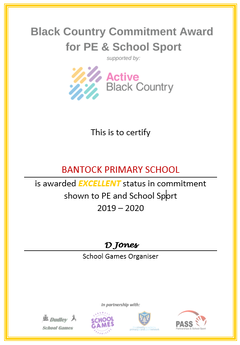
Swimming
At Bantock, Year 3 and Year 5 pupils attend weekly swimming lessons in order to meet National Curriculum requirements for swimming and water safety:
- – swim competently, confidently and proficiently over a distance of at least 25 metres;
- – use a range of strokes effectively;
- – perform safe self-rescue in different water-based situations.
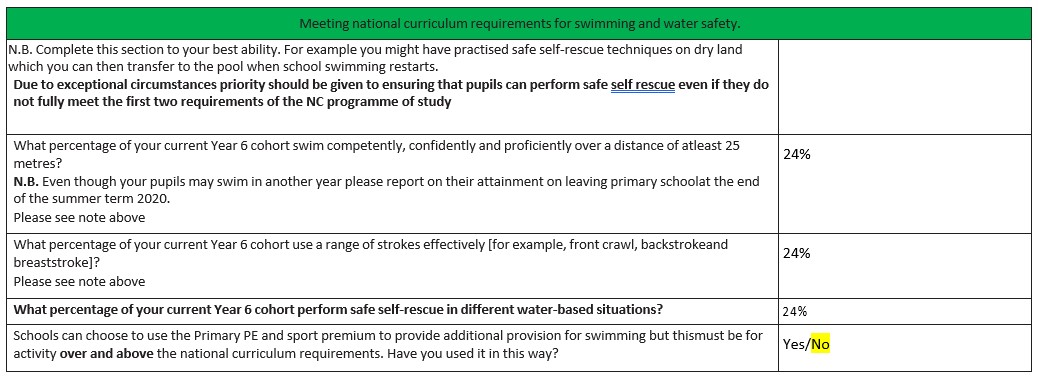
|
Rights Respecting School Convention on the Rights of the Child |
24 – Health, water, food, environment 26 – Social and economic help 27 -Food, clothing, a safe home 31 – Rest, play, culture, arts |
